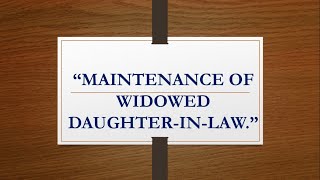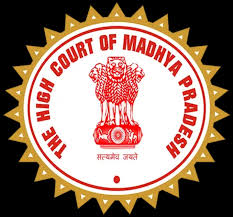Akhil Kumar Srivastava, Member J
1. The applicant in this Original Application has prayed to quash and set aside the impugned recovery passed against the applicant and to refund the recovered amount with appropriate interest.
2. Precisely the case of the applicant is that the applicant got retired on superannuation w.e.f.31.07.2015. On implementation of 6th Pay Commission w.e.f. the pay of applicant was fixed by respondents. Suddenly respondents intimated that excess amount of Rs.69553/- was paid to the applicant due to wrong fixation of pay and accordingly they have deducted the said amount from gratuity of the applicant.
3. Learned counsel for the applicant contended that the excess payment made to the applicant was not on account of any misrepresentation or fraud on his part. The excess payment was made due to a mistake on the part of respondents in fixation of pay of the applicant and in the light of judgment of Hon’ble Supreme Court in the case of State of Punjab vs. Rafiq Mashi (2012) 8 SCC 417 no recovery can be made from the retired employee.
4. Respondents in their reply have submitted that recovery was initiated against the applicant before his retirement and the same was intimated to him on 25.05.2015 and requested the applicant to return the same but applicant ignored and not paid the excess amount which was given to him by mistake in wrong fixation.
5. Heard the learned counsel for the applicant and perused the pleadings and documents annexed therewith. No rejoinder has been filed by the applicant.
6. Hon’ble Supreme Court in a catena of decisions has consistently held that if the excess amount was not paid on account of any misrepresentation or fraud of the employee or if such excess payment was made by the employer by applying a wrong principle for calculating the pay/allowance or on the basis of a particular interpretation of rule/order which is subsequently found to be erroneous, such excess payment of emoluments or allowances are not recoverable. This relief against the recovery is granted not because of any right of the employees but in equity, exercising judicial discretion to provide relief to the employees from the hardship that will be caused if the recovery is ordered.
7. On this aspect, the Hon’ble Supreme Court in the case of State of Punjab and others etc. Vs. Rafiq Masih (White Washer) etc., (2015) 4 SCC 334 in Paragraphs 13 and 14 of this judgment has held that recovery from retired employees or employee who are due to retire within one year of the order of recovery even though it would be open to the employer to correct the mistake, it would be extremely iniquitous and arbitrary to seek a refund of the payments mistakenly made to the employee. The relevant portion of this judgment reads as under:-
“(13) First and foremost, it is pertinent to note, that this Court in its judgment in Syed Abdul Qadir's case (supra) recognized, that the issue of recovery revolved on the action being iniquitous. Dealing with the subject of the action being iniquitous, it was sought to be concluded, that when the excess unauthorised payment is detected within a short period of time, it would be open for the employer to recover the same. Conversely, if the payment had been made for a long duration of time, it would be iniquitous to make any recovery. Interference because an action is iniquitous, must really be perceived as, interference because the action is arbitrary. All arbitrary actions are truly, actions in violation of Article 14 of the Constitution of India. The logic of the action in the instant situation, is iniquitous, or arbitrary, or violative of Article 14 of the Constitution of India, because it would be almost impossible for an employee to bear the financial burden, of a refund of payment received wrongfully for a long span of time. It is apparent, that a government employee is primarily dependent on his wages, and if a deduction is to be made from his/her wages, it should not be a deduction which would make it difficult for the employee to provide for the needs of his family. Besides food, clothing and shelter, an employee has to cater, not only to the education needs of those dependent upon him, but also their medical requirements, and a variety of sundry expenses. Based on the above consideration, we are of the view, that if the mistake of making a wrongful payment is detected within five years, it would be open to the employer to recover the same. However, if the payment is made for a period in excess of five years, even though it would be open to the employer to correct the mistake, it would be extremely iniquitous and arbitrary to seek a refund of the payments mistakenly made to the employee.
(14) In this context, reference may also be made to the decision rendered by this Court in Shyam Babu Verma v. Union of India (1994) 2 SCC 521, wherein this Court observed as under:
“11. Although we have held that the Petitioners were entitled only to the pay scale of Rs.330-480 in terms of the recommendations of the Third Pay Commission w.e.f. 1-1-1973 and only after the period of 10 years, they became entitled to the pay scale of Rs.330-560 but as they have received the scale of Rs.330-560 since 1973 due to no fault of theirs and that scale is being reduced in the year 1984 with effect from 1-1-1973, it shall only be just and proper not to recover any excess amount which has already been paid to them. Accordingly, we direct that no steps should be taken to recover or to adjust any excess amount paid to the Petitioners due to the fault of the Respondents, the Petitioners being in no way responsible for the same.”
It is apparent, that in Shyam Babu Verma's case (supra), the higher pay-scale commenced to be paid erroneously in 1973. The same was sought to be recovered in 1984, i.e., after a period of 11 years. In the aforesaid circumstances, this Court felt that the recovery after several years of the implementation of the pay scale would not be just and proper. We therefore hereby hold, recovery of excess payments discovered after five years would be iniquitous and arbitrary, and as such, violative of Article 14 of the Constitution of India.”
(emphasis supplied by us)
8. No doubt, in para 18(ii) of the judgment in the matters of Rafiq Masih (supra) the Hon’ble Supreme Court has held that recovery from employees would be impermissible in law, when the recovery from retired employees or employee who are due to retire within one year of the order of recovery. Para 18 of the said judgment reads as under:-
“(18). It is not possible to postulate all situations of hardship, which would govern employees on the issue of recovery, where payments have mistakenly been made by the employer, in excess of their entitlement. Be that as it may, based on the decisions referred to herein above, we may, as a ready reference, summarise the following few situations, wherein recoveries by the employers, would be impermissible in law:
(i) Recovery from the employees belonging to Class-III and Class-IV service (or Group 'C' and Group 'D' service).
(ii) Recovery from the retired employees, or the employees who are due to retire within one year, of the order of recovery.
(iii) Recovery from the employees, when the excess payment has been made for a period in excess of five years, before the order of recovery is issued.
(iv) Recovery in cases where an employee has wrongfully been required to discharge duties of a higher post, and has been paid accordingly, even though he should have rightfully been required to work against an inferior post.
(v) In any other case, where the Court arrives at the conclusion, that recovery if made from the employee, would be iniquitous or harsh or arbitrary to such an extent, as would far outweigh the equitable balance of the employer's right to recover.”
9. In view of the law settled by the Hon’ble Apex Court, the case of the applicant is fully covered specifically in view of the fact that the recovery has been dealt with wrong fixation of pay which was granted at the time of implementation of 6th pay commission and recovery has been made in 2015 i.e. after more than 8 years. It is not contended before us that the excess payment has been paid on account of the misrepresentation or fraud of the applicant in fact it was a mistake in fixation of pay by the respondents themselves. Therefore, this Court felt that the recovery at the time of retirement would not be just and proper. We therefore hereby hold, recovery of excess payments discovered at the time of retirement would be iniquitous and arbitrary, and as such, violative of Article 14 of the Constitution of India.
10. The impugned recovery initiated against the applicant is hereby quashed and set aside. Respondents are directed to refund the amount recovered on account of implementation of aforesaid order to the applicant, within a period of three months from the date of receipt of a copy of this order.
11. Accordingly, this Original Application is hereby allowed with the above directions. However, the applicant shall not be entitled for any interest. No orders as to costs.

